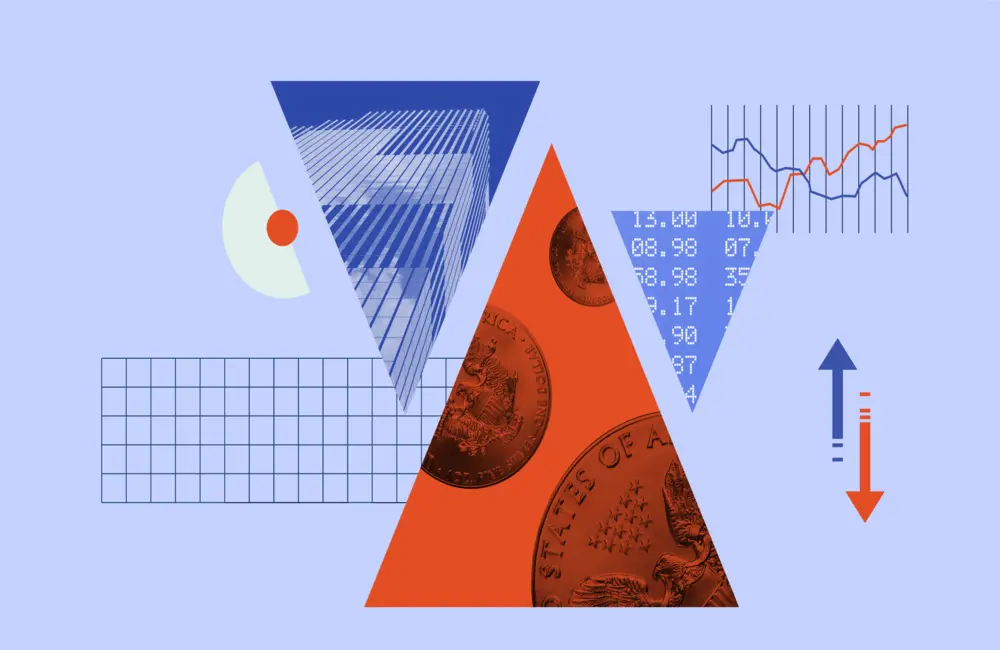ASX futures were 2 points or 0.0% to 6854 near 7.00am AEST on Tuesday, indicating a flat start.
Stocks on Wall Street slid on Monday as the Federal Reserve readied to meet this week to debate how much further to lift interest rates as it attempts to tamp down inflation.
The S&P 500 fell 0.5 percent and the tech-heavy Nasdaq Composite Index slid 0.99 percent. The Dow Jones Industrial Average fell 0.14 percent. Stocks in the United States climbed Friday, and major indexes are set to end October higher.
Traders are rearranging their positions ahead of Wednesday, when traders say they are virtually sure of a 0.75 percentage-point rate increase by Fed officials. Attention will be on comments by Fed Chairman Jerome Powell that could provide clues on whether the Fed might reduce the scope of its moves and the rate of increases, or keep up aggressive moves aimed at reining in inflation.
“I’m expecting we’ll hear Powell kind of walking a fine line, kind of trying to highlight some of that data in a little bit of a positive tone, but not the markets take it as a full-throated pivot,” Luke Tilley, chief economist at Wilmington Trust, said of his expectations for Mr. Powell’s comments on Wednesday.
In the commodity markets, Brent crude oil was 0.98% lower at $US94.83 a barrel, gold slipped 0.65% to US$1,634.16.
Yields on 2 Year Australian government bonds increased to 3.22% and those on 10 year debt increased to 3.75%. The yield on 2 Year US Treasury notes rose to 4.5% and the yield on the 10 Year US Treasury notes was to 4.10% Overseas.
The Australian dollar was at 63.92 US cents from a previous close of 64.12. The Wall Street Journal Dollar Index, which measures the dollar against 16 other currencies, rose 0.07 point to 103.75.
Asia
The Chinese shares were mixed at the end of the day, as the Shenzhen Composite Index and the ChiNext index swung to positive territory after being weighed down in the last two days, indicating the investors' better mood even though China PMI data released on Monday lower than expected boded ill for the country's economic recovery. Stocks related to software outperformed the market, with Beijing Kingsoft Office rising 4.4% and Yonyou Network up 3.6%. Chinese property developers and energy shares were also losers. The Shanghai Composite Index closed down 0.8% at 2893.48, while the Shenzhen Composite Index rose 0.4% and the ChiNext Price Index was up 0.6%.
Stocks in Hong Kong finished lower as a punishing selloff remained in place amid investor concern about both China’s prospects and the global economy. The benchmark Hang Seng Index fell 1.2% to 14687.02. That brought the index’s October fall to 15 percent, and left the benchmark down more than 37 percent so far this year, making Hong Kong one of Asia’s worst-performing equities markets. It was Chinese developers that led the losses on Monday. Longfor fell 24 percent after its founder and chairwoman resigned, sparking concerns that the resignation hinted at operational problems worse than previously thought in China’s real-estate industry.
The Nikkei Stock Average finished 1.8% higher at 27587.46, supported by ongoing hopes for earnings growth and that the Fed would at least temporarily ease off its pace of tightening. Electronics issues were among the top performers, with Fuji Electric up 3.0% and Hitachi 6.0% higher. Keyence Corp. climbed 8.9% after reporting a surge in first-half net profit. Toyota’s trading arm, Toyota Tsusho, closed up 8.1% after it raised its full-year net profit forecast on better first-half earnings.
Europe
European stocks trade mostly higher in postclose trade: European stocks traded mostly higher in postclose trade as investors weighed eurozone data and look ahead to policy decisions from the Federal Reserve and Bank of England later in the week. The pan-European Stoxx Europe 600 added 0.4 percent; the DAX grew 0.1 percent and the CAC 40 lost 0.1 percent.
Travel stocks and banks are the biggest risers on the Stoxx and retail and industrial stocks are the worst performers. Eurozone inflation was hotter than analysts had expected in October according to data out today while the economy grew slower in the 3Q, just not as slowly as forecast. The Fed and BOE policy decisions are on Wednesday and Thursday, respectively, although some analysts think policy will be even more cautious.
The FTSE 100 index in London added 0.7 percent, to 7,094.53, on Monday, lifted by the financial sector and a declining British pound.
Banks are the beneficiaries of this upgraded assumptions that higher interest rates should boost earnings estimates, says IG chief market analyst Chris Beauchamp in a note. That being said, gains were capped somewhat on fears that the U.S. Federal Reserve might be a little more hawkish than anticipated later this week, Beauchamp says.
The top riser on the index was British Airways-owner IAG, which added 5.4% after reports it could buy easyJet and also Portuguese Airline TAP. Centrica was next up 4.7%, and NatWest Group ended up 4.5%. Intertek Group fell 2.7% and Airtel Africa fell 1.6% to be among the biggest fallers.
North America
U.S. stocks edged lower Monday as the Federal Reserve geared up to meet this week to consider how much further to raise interest rates as it seeks to tame inflation.
The S&P 500 edged down 0.5 percent and the tech-focused Nasdaq Composite Index lost 0.99 percent. The Dow Jones Industrial Average fell 0.14 percent. Stocks in the United States climbed on Friday and major indexes were on pace to end October with higher prices.
Traders are restructuring their portfolios in anticipation of Wednesday, when traders say it is virtually a foregone conclusion that Fed officials will raise interest rates by an additional 0.75 percentage point. All eyes will be on comments by the Fed chairman, Jerome Powell, that could provide clues about whether the Fed may slow the quantity and pace of rate increases, or instead go full bore on reining in rising prices.
The Fed’s sharp interest-rate increases, the steepest since the 1980s, have pounded markets for most of this year, but signs of moderation in October helped push stocks toward their fourth monthly gain in the last five months. The Dow is set for a 14 percent rise this month, its best monthly gain since 1976. In the speeches in October, some Fed officials suggested they are wrestling with whether their December meeting should usher in a slower tightening — trying to find a balance between bringing inflation under control and preventing the economy from experiencing a sharp slowdown.
In other words, Investors are wondering whether the December will produce the third quarter-point rate increase in a row, or whether the Fed is going to shift gears and deliver a half-point move. Trades in the futures markets indicate that traders give even odds — roughly — on either outcome, according to CME Group.
“I’m expecting Powell to be walking a tightrope, trying to bend the market’s attention to some of the positive data without them taking it as a full-blown pivot,” Luke Tilley, the chief economist at Wilmington Trust, said of what he expects to hear from Mr. Powell on Wednesday.
No matter December’s size of the move, economists are warning that elevated inflation — still at an 8.2 percent annual rate through September — will keep the Fed on course to raise rates well into next year. On Monday, economists at Goldman Sachs raised their projection of how high the target interest rate will rise, betting on rate increases to March. The bank now expects the Fed’s target to hit 4.75% to 5% next year, compared to the current range of 3% to 3.25%.
Investors are also sifting through reports on third-quarter earnings, which have lifted some companies, like United Airlines and JPMorgan, whose results demonstrated resilience in a chaotic economy. Some big tech companies like Microsoft, on the other hand, have been punished after posting subpar results. This week, about a third of the companies in the S&P 500 will release their latest numbers.
Technology stocks were some of the companies driving the S&P 500’s losses in afternoon trading. Meta Platforms, the parent company of Facebook, slid 6.1 percent, adding to last week’s decline after it reported lower-than-expected earnings. Shares of Apple dropped 1.1 percent as Foxconn, a major iPhone producer for Apple, grappled with a Covid-19 outbreak at a China factory.
With some rate increases still to come, it isn’t all that comforting to hang our hats on the late October stock market rally, said Paul Eitelman, chief investment strategist for North America at Russell Investments. Russell hasn’t bought on stock-market dips this year, worried that a recession could lead to deeper losses.
“I believe that there’s critical issues that we still have to struggle with as global equities investors in coming months,” Mr. Eitelman said. “As long as the labor market is running hot, U.S. monetary policy will pose a headwind to the market going forward.”






















